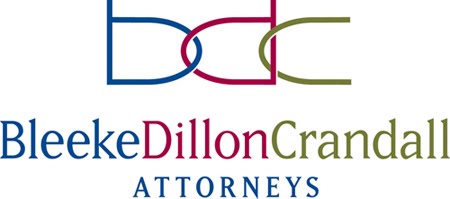Many lawyers who do what I do on a regular basis describe themselves as litigators. We work on civil cases filed in court, conducting formal discovery designed to establish the evidence concerning liability and damages. We assess case value based on that evidence, and in comparison to other cases of similar content. We develop and work a strategy to bring the case to the point of most favorable resolution to our client.
I prefer to consider myself a trial lawyer, as opposed to a litigator. The term "trial lawyer" has been embraced by attorneys who regularly represent individual plaintiffs in injury and death cases. That is not what I do; I am typically on the defense side of such cases. But every lawsuit has at least the potential to go to trial before a judge or a jury. For that reason, my preferred strategy is to develop the case, from start to finish, as if the case will indeed be tried---even if, as the statistics confirm, the vast majority of cases are resolved without a trial, usually through settlement.
Litigators these days (including trial lawyers like me) do not get to go to trial very often. For that reason we are not often called upon to consider what actually happens as a case is being presented to a jury. In my experience there are two key challenges associated with presenting a case to a jury, and mastery of those challenges makes victory more likely.
Remember that the jury does not know the case like the lawyers and parties do. By the time a case gets to trial, the lawyers and litigants have lived with the evidence for a long time, usually years. We have had years to absorb the impact of key evidence, and to understand the unimportance of minor facts. We cannot "unlearn" what we have learned and thought about during the course of the litigation. The jurors, on the other hand, have a relatively short span of time to hear and consider the facts. We may assume that jurors know or understand more about the evidence and inferences that arise from that evidence than they do.
The key challenge for the attorneys is to slow down, reconsider the relative importance and likely impact of the evidence, and to present it to the jury in a compelling fashion. More than once, I have heard jurors say at the close of the case, "We didn't really understand what this case was about until the trial was nearly over," and "We couldn't tell what the attorneys were asking us to do." We cannot ask jurors to put themselves in our clients' shoes. But we can try to put ourselves in the jurors' shoes and understand that the case is new to them. Doing so may provide insight that will help us marshal the evidence effectively towards a win.
The case is won or lost by the quality of the witnesses. Attorneys can do a lot to shape whether a case is won or lost, but ultimately it is the witness testimony that determines the result. This sounds overwhelmingly obvious; and yet, as we pursue written discovery, explore motions, and think about how certain evidence will be admitted, we often overlook the impact of the witness testimony. In my experience, telling the client, "This witness is important, he will not make a very good impression in terms of his appearance or demeanor, but what he will actually say is helpful to our case" is the equivalent of telling the client that the witness will hurt the case.
Along the same lines, we often view witness testimony as primarily a vehicle for getting documents and other exhibits admitted into the record. Completing the record is important, but it should not occupy the primary focus when deciding what witnesses should be called or how the witnesses will be prepared to testify. When we have witnesses who can tell a coherent, consistent story, our chances of victory are maximized.
Tuesday, May 13, 2014
Subscribe to:
Posts (Atom)

